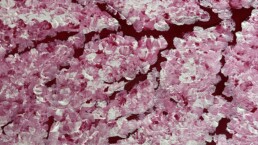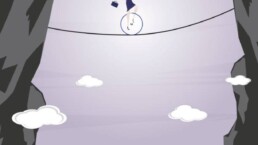
In this Letter of Inspiration, I use Milan Kundera's work "The Unbearable Lightness of Being" to illustrate the difficulty of making clear decisions. In addition, I was inspired by the view of viticulture. —an industry which can be a true role model when it comes to the topic of patience, as it must work within the limits imposed by nature.
Clarity in business decisions
One of the main characters in Kundera’s famous book is Tereza, a woman marked by self-doubt who describes in a dream her fear of not being enough. She dreams that her husband, Tomas, a philosopher who enjoys life, sends her to Petřín Hill in Prague, where a man with a gun is helping three suicides kill themselves. When the armed gentleman turns to her, she cries out, “It was not my choice!” and is granted permission to leave. Only at the moment when it is literally a matter of life and death does Tereza take responsibility for herself and make a decision. Why is it so difficult to make clear decisions?
It starts with the sheer volume of possibilities we are offered. The routine walk to the café around the corner in the morning becomes an interrogation game: Flat white? Small or large? What kind of milk? Cash or card? This drags on into the meetings that follow, where future investment decisions, hiring or corporate strategies are discussed. There is no shortage of options or opinions; in fact, there are too many. The trick is to figure out how you like your coffee—what you actually want.
The goal here is not perfection. We are not machines, nor can a decision be made with the gift of perfection, like that of the master forger Beltracchi. Clarity about what you don’t like is a good first step. “It was not my choice!” cries out Tereza—I don't want to die. Although this was a dream, by taking it a bit further, one can imagine that this decision on Petřín Hill brought further consequences. Because the moment of clarity has an incredibly liberating energy. Most of the time, this clarity has been present in us for a long time, nevertheless we tend to hesitate. There are many reasons for this: not yet being ready for the consequences that come with it, being afraid of change and letting go of the familiar, or (still) lacking the words to express it. One thing you should be aware of is that life is not static, but in a constant state of flux. Whether you decide consciously or choose the strategy of waiting, life keeps flowing. The greatest security is found in trusting continuous movement.
Looking back at the past, none of my decisions have ever brought anything bad. Change, yes, but that’s what happens when you move. The context changes, and a trained intuition is a tool that gives support and clarity in a state of continuous movement. I will be speaking on how this can be trained on October 27 at a lecture at the Senior Management Program of the University of St. Gallen. Details will be available on the website afterwards.
In Globalance Bank’s Zukunftsbeweger magazine, I wrote about stability in motion in my latest column. Click here to read the article.
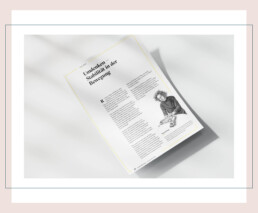
What has inspired me recently? Patience.
The last vineyards have just been harvested and the main work in the cellar has been completed. Now it is time to wait, because working with nature does not allow for short-term adjustments, nor can the harvest be repeated or mistakes corrected. There is a dependence and with it a hope that nature has been kind to the winegrowers. After all, there will not be another chance until next year. Nature sets the pace and we have to follow.
What this example shows me is not only the dependence on external influencing factors (because they exist everywhere), but also the level of clarity it takes to produce this precious product. For example, do I want an elegant, lean wine with low alcohol that tastes more like dark berries or even tobacco, or something completely different? What framework (cultivation, aging and production) does it take for me to succeed? And even if I can visualize and express all this, I still have to wait to see if my strategy has worked, because the finished result will only be revealed in the bottle.
Patience is a quality that is often lost in the business world, where I have been conditioned to believe that thoughts should be implemented immediately. Silicon Valley tells us we should “fail fast”. But is that the case? Don’t good ideas, just like good wines, need time to mature in order to develop their full potential? This is certainly true in wine, and I think it’s true in business as well.
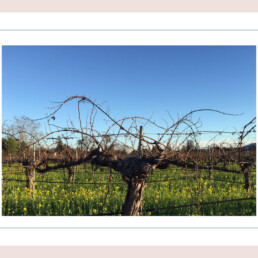
Summer is now noticeably over and the dark and cool months have begun, ushering in a time for reflection and debate. May this Letter of Inspiration encourage you to do so and initiate new thoughts!
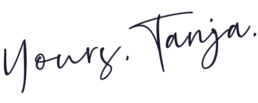
Share
